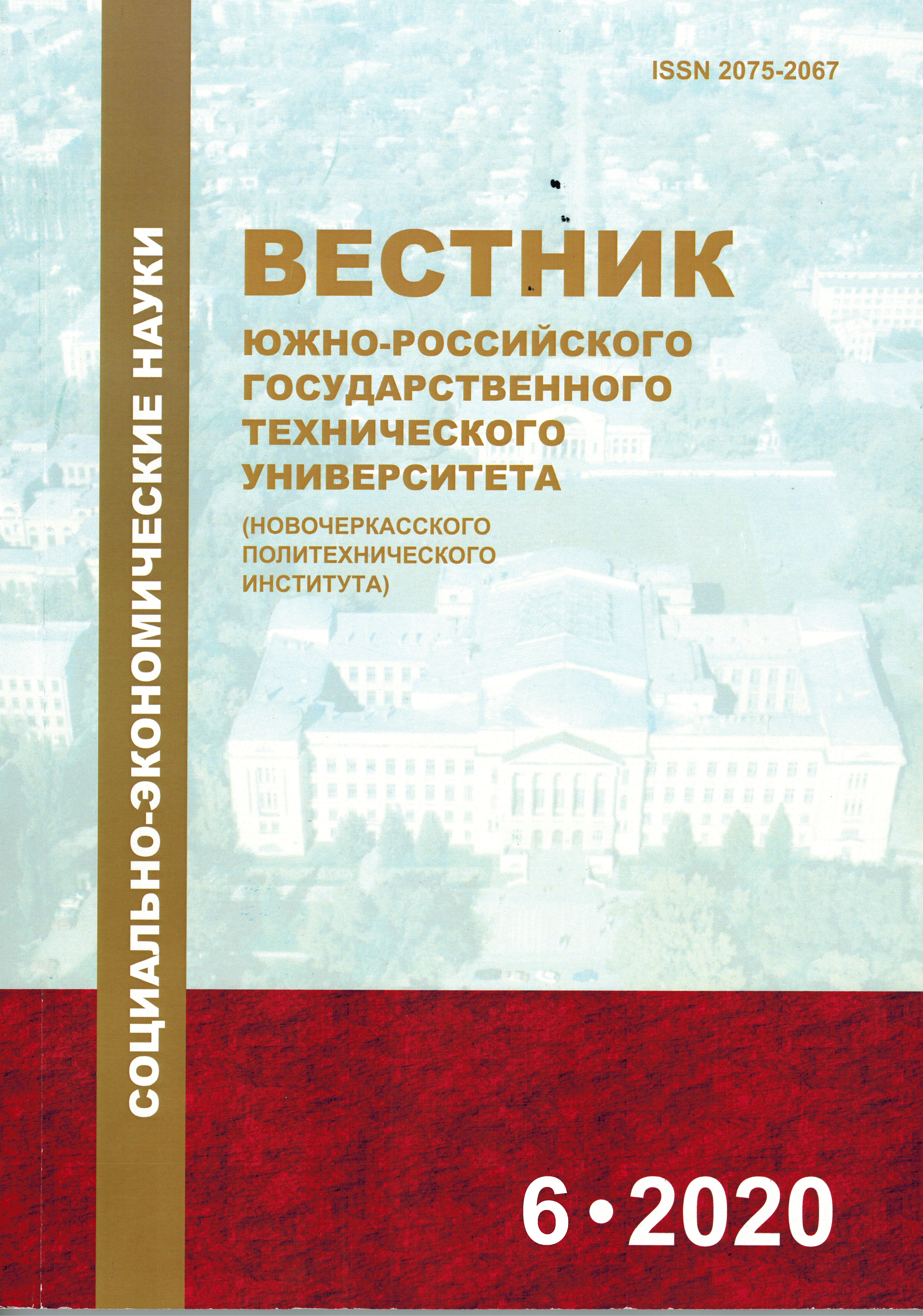ОРГАНИЗАЦИОННО-ПРАВОВЫЕ АСПЕКТЫ ЭКОЛОГО-ИНДУСТРИАЛЬНОГО ВЗАИМОДЕЙСТВИЯ
DOI:
https://doi.org/10.17213/2075-2067-2020-6-144-153Keywords:
ecological-industrial space; circular economy; «3R» and «10R» framework; ecology; sustainable developmentAbstract
The purpose of the research is to analyze the legal norms regulating environmental and economic interaction from the point of view of elements of the circular economy framework.
The methodological basis of the research is provided by the conceptual provisions of the theory of circular economy and the theory of social space. The scientific methods used include comparative and causal analysis.
Research result. Every year, economic losses caused by environmental degradation, excluding damage to human health, amount to 4-6% of GDP. At the same time, the country's competitiveness in world markets directly depends on the development of high-tech industries, which does not imply making the task of preserving environmental stability a priority. The solution to this contradiction can be found in the application of the principles of circular economy, which is focused on achieving the goals of sustainable development by reducing the linearity of production and consumption systems. This contradiction is considered in the work from the point of view of the spatial approach, which determined the need to analyze regulatory documents in the field of environmental regulation in order to identify elements of the circular economy framework. As a result of the analysis, it was found that the elements of the «3R» and «10R»frameworks are currently poorly represented in the legal space of the Russian Federation. In General, the regulatory acts contain an element of «reduce» in the context of reducing the negative impact on the environment. The elements of frame «3R» «reuse» and «recycle», as well as the elements of frame «10R» are currently practically not represented in the regulatory field, which complicates the transition to the principles of a circular economy and does not meet the objectives of achieving the competitiveness of the national economy in world markets.
The prospects of the research are to identify specific organizational and legal tools for the transition of the economic system to a circular type of development.
References
Валько Д. В. Циркулярная экономика: теоретическая модель и эффекты реализации // Национальные интересы: приоритеты и безопасность. – 2018. – Т. 14. – Вып. 8. – С. 1415–1429.
Гребенкин А. В., Вегнер-Козлова Е. О. Теоретические и прикладные аспекты концепции циркулярной экономики // Журнал экономической теории. — 2020. — Т. 17. — №2. — С. 399-411.
Основы государственной политики в области экологического развития Российской Федерации на период до 2030 г. (утв. Президентом РФ 30.04.2012 г.).
Пахомова Н. В., Рихтер К. К., Ветрова М. А. Переход к циркулярной экономике и замкнутым цепям поставок как фактор устойчивого развития // Вестник СПбГУ. Экономика. – 2017. – Т. 33. – Вып. 2. – С. 244–268. – DOI 10.21638/11701/spbu05.2017.203.
Сербулова Н. М., Городнянская А. С., Канурный С. В. Барьеры на пути перехода к циркулярной экономике // Экономика и предпринимательство. – 2018. – №3 (92). – С. 978–983.
Стратегия экологической безопасности Российской Федерации на период до 2025 года (утв. Указом Президента Российской Федерации от 19 апреля 2017 г. №176).
Ellen MacArthur Foundation. Towards the Circular Economy: Economic and Business Rationale for an Accelerated Transition. 2013 [Electronic resource]. – URL: https//www.ellenmacarthurfoundation.org/assets/downloads/publications/Ellen-MacArthur-Foundation-Towards-the-Circular-Economy-vol.1.pdf (Date accessed: 24.04.2020).
Kirchherr J., Reike D., Hekkert M. Conceptualizing the circular economy: An analysis of 114 definitions // Resources, Conservation & Recycling. – 2017. – №127. – P. 221–232. – DOI:10.1016/j.resconrec.2017.09.005.
Korhonen J., Honkasalo A., Seppälä J. Circular Economy: The Concept and its Limitations // Ecological Economics. – 2018. – №143. – P. 37–46. – DOI: 10.1016/j.ecolecon.2017.06.041.
Sauve S., Bernard S., Sloan P. Environmental sciences, sustainable development and circular economy: Alternative concepts for trans-disciplinary research // Environmental Development. –2016. – №17. – P. 48–56. – DOI: 10.1016/j.envdev.2015.09.002.
Silvestri F., Spigarelli F., Tassinari M. Regional development of Circular Economy in the European Union: A multidimensional analysis [Electronic resource] // Journal of Cleaner Production. – 2020. – №255– P. 1-19. – URL: https://doi.org/10.1016/j.jclepro.2020.120218.


